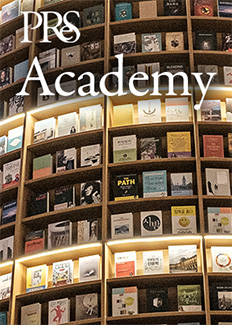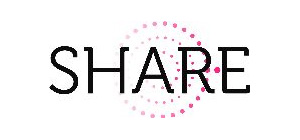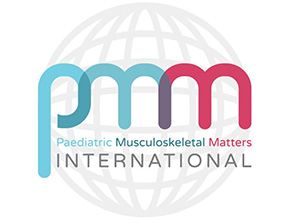My PRES-EULAR Like
Date: 01.07.2019
Read feedback from colleagues on the PReS-EULAR congress in Madrid.
Ezgi Deniz Batu, pediatric rheumatology resident, an active EMERGER member, Ankara Training and Research Hospital, Turkey
YIM-Day 2-Session VI: A monogenic disease with wide range of symptoms: Deficiency of adenosine deaminase 2 (Ezgi Deniz Batu)- Got the best oral presentation prize in clinical science! Very inspiring and rewarding moment!
EULAR/PRES Congress: Thursday-13.30-Pediatric Rheumatology Session: Adults are just grown up children! Discuss- Everything starts in childhood!- Berrent J. Prakken:
1. It made me think more about the transition period from childhood to adulthood which is not so natural or smooth-going for most patients.
2. It stimulated me to work more to improve the transition process.
3. Finally, this talk provided great clues on how to be a good speaker.
Domagoj Buljan, MD
Veronica Moshe Bergonzo, Meir Medical Center,Israel, PReS working party of Vaccination - Study group
YIM day 2/EULAR-PReS Session: Adults are just grown up children! Discuss: Live attenuated vaccines in pediatric rheumatic diseases are safe: multicenter, retrospective data collection.
1. I was motivated by the courage of the investigators to introduce live attenuated vaccines to immunosuppressed patients, especially to ones with sJIA.
2. Although it was a retrospective study, it implies patients can be safely vaccinated with MMR-V booster vaccines regardless of their age, diagnosis and therapy, which I found really interesting.
3. Finally, this presentation evoke my interest in following their work regarding a prospective study to achieve a high grade of evidence.
Jeannette Cappon- physiotherapist- Amsterdam- PRES council member-chair- allied health professionals
Favorite presentation:
12 june, 17:20 ORAL PRESENTATION OF Prof. Dr. Kirsten Minden from Germany
Topic: CONSUMER PERSPECTIVE ON PAEDIATRIC RHEUMATOLOGY CARE AND SERVICE DELIVERY: RESULTS FROM AN EARLY JUVENILE IDIOPATHIC ARTHRITIS (JIA) COHORT STUDY
"the presentation addressed the lowest satisfaction in a group of more than 800 families with children with JIA for school-related services (e.g 36% not or partly satisfied with teachers knowledge about the child’s illness).
Although dissatisfaction with support in school situation for the children with JIA is mentioned earlier in qualitative research, these numbers underpin the need for addressing education school personal which is a part of the role of HP like nurses, occupational therapists or physical therapists.
I think that research in how to educate school personal is necessary and can be a topic to discuss in our Health Professionals Committee of PReS or even a topic for a congress session
Amandine Charras
George Robinson (United-Kingdom)-YIM meeting-day1 11/06/19
session 1: JIA, JSLE
METABOLOMICS IN JUVENILE-ONSET SLE: IDENTIFYING NEW BIOMARKERS TO PREDICT CARDIOVASCULAR RISK
1- hypothesis of a lipid metabolism dysregulation.
2- stratification of patient according their lipoprotein profil
3- ApoB/A1 could be a good marker
Natalia Cabrera (France) – EULAR 2019- 14/06/19
Osteoarthritis: Research in motion
Tackling the challenges of autoimmune/autoinflammatory conditions in children and young people
OP0257 CHILDHOOD-ONSET MONOGENIC SYSTEMIC LUPUS ERYTHEMATOSUS NOT DUE TO COMPLEMENT DEFICIENCY: ASYSTEMATIC REVIEW OF 90 CASES)
1- analysis of all monogenic lupus published
2- analysing according to 4 genetic pathways (adaptative immunity, Type 1 interferon, cell clearance, metabolism pathway)
In both cases these 2 studies highlight new patient classification/stratification interesting to consider. This could eventually help us in our current genetic project on genetic factor in jSLE patients that we have in the lab.
Dr. Himanshi Chaudhary, DM postdoctoral fellow in Pediatric clinical immunology and Rheumatology, Advanced Pediatrics center
Postgraduate Institute of Medical education and research, Chandigarh, India
Stephanie Shoop- Worral, UK
11.06.2019 , afternoon session 14:50- Trajectories of disease activity over the first three years following JIA diagnosis
1. It was interesting to see how the trajectory models were designed based on patterns of progression of the disease process.
2. These can actually aid in deciding the aggression of the therapy and predicting long term outcomes. Thereby, optimizing the treatment of JIA.
3. It was heartening to see young researchers from all across the globe, presenting their research and exchanging their ideas on important topics in pediatric rheumatology. It was a great learning experience for all of us.
This concept will be useful in clinical practice while deciding the aggression of therapy at disease onset. Also it opens a lot of avenues for further research especially concerning the psycho-social aspect of the patients with JIA, as was discussed during the session.
Wendy Costello– council member- ENCA representative
Breaking down the barriers transition
This session was my favorite of EULAR.
All the speakers had great ideas that made sense. Forget the scores and toolboxes, listen to the child and their family, start the process early and face to face meetings with adult team before you move. Have a friendly face such as a nurse or allied health professional as it seems the family and child look at the consultant as another parent and may not open up to them. Contact with other patients for the young person is important and developing a safe place they can talk or a website they can co-design to make sure their voice is heard. Prof Stephen Ball did not use the word transition or transfer so not to label it.
Merav Heshin-Bekenstein Pediatric Rheumatologist, young investigator. Dana Children's Hospital of Tel Aviv Medical Center, Israel; previously a fellow in Pediatric Rheumatology at University of California San Francisco, USA.
YIM: Day 2: Treatment of JIA session: 8:45: Roline Krol: Development of IBD during treatment with Etanercept in patients with JIA.
EULAR/PReS Congress: Friday-14:15-HOT session: Kevin Winthrop: Risk assessment, treatment and prevention of infections in rheumatic diseases: the infectious specialist perspective.
1. YIM talk: great presentation, that was also very relevant for my practice, since I was recently taking care of a JIA patient who developed IBD while being on Etanercept.
2. EULAR talk: this is definitely an extremely important topic, that was presented in a fascinating way by the lecturer, who gave the state of the art on the topic, with a lot of evidence based information that was delivered very smoothly.
3. Last but not least, the YIM and PReS receptions were real fun events, where I had the opportunity to get to meet the great PReS community and I am very thankful for that!
Lianne Kearsley-Fleet - Lead Research Analyst for the Biologic Studies Group , The University of Manchester
Tore K. Kvien – Norway.
PARE Session: What’s new – Latest new on biologic treatment: “To switch or not to switch?”
1. Provided details on biosimilar therapies, particularly showing how many there were now available across the globe.
2. Presented work in Denmark trying to quantify biosimilar effectiveness by comparing the pre-switch period with the post-switch period. There appeared to be no differences.
3. Patients who were switching back to the originator after switching onto a biosimilar therapy were switching back based on patient global assessment rather than joint count.
This talk has given me an insight into how I might analyse the UK data that we have on patients with RA on biosimilar therapies.
Lovro Lamot, a chair of the EMERGE group and a pediatric rheumatologist from Zagreb, Croatia, currently doing a postdoctoral fellowship in Vancouver, Canada.
Wednesday, 14.40.
Session: EULAR projects in Paediatric Rheumatology.
Presentation: The global challenge and opportunity for paediatric rheumatology (Dr. Chris Scott, South Africa).
POINTS:
1. The majority of children with paediatric rheumatic diseases live in less resourceful countries and have no access to appropriate care;
2. Some physicians are trying to help those children regardless of challenging circumstances;
3. PRES is taking an active approach to help those physicians and those children, and we are all invited to give our contribution.
Veronica Moshe Bergonzo Pediatric rheumatology fellow.- Meir and Sharee Zedek Medical Centers, Israel
Thursday session - 1345 -Adults are just grown up Live attenuated vaccines in pediatric rheumatic diseases are safe for me- first time presentation in international meeting, and presentation before 3 EULAR/PRES presidents!!what an excitement !
1- Provide the opportunity for young professionals to present their studies that might influence in future settlements.
2. The current study extend the current PReS recommendation and implies that patient can be safely vaccinated with MMRV booster vaccines, regardless of their age, diagnosis or therapy
3. The study that was presented provide the basis for a prospective study to achieve a high grade of evidence
Sara Röstlund- Physiotherapist Karolinska University Hospital Stockholm
Stephen Ball- Thursday session 10:20-10:40 ; From Child to adult care-breaking down the barriers of transition.
Tackling transition: The current landscape, and where we are heading.
- We need to focus on developmentally appropriate care ( instead of Transition in a certain age) and see the young people as a distinct group .
- Need to collaborate with other chronic disease groups, for example diabetes and learn from each other.
- Stephen was a great speaker who really made the audience interested in the subject! We are on our way with a good project in our clinic - but still far from the developmentally appropriate care due to strict economic reasons….
Dr Eve Smith
NIHR Academic Clinical Lecturer, University of Liverpool and Paediatric Rheumatology Grid Trainee, Alder Hey Children’s Hospital, Liverpool, UK
My PReS EULAR like is for Miss Sophie Ainsworth, Thursday session- 1330- Adults are just grown up children:
Discuss Sophie Ainsworth-
You must get it right for us! patient perspectives of SLE
- Sophie highlighted how important it is for us to treat each teenager as an individual and not use a 'standard transition checklist approach' for the management of all young people, as each has different needs.
- The importance of supporting teenagers to achieve their academic potential by taking the time to speak to their school / college where necessary, involving the extended multi-disciplinary team in this as necessary.
- The importance of psychological support for patients with chronic illnesses like JSLE and signposting to charities and other third party agencies that can support patients
Anna Elisa Surace
My highlight for YIM was Erdal Sag's (Turkey) talk in the 08:35-09:25 ---SESSION IV- TREATMENT of JIA on 12.06.2019.
- disease model very close to actual disease environment
- showing that there is no exhaustion despite presence of inhibitory receptors
- fantastic to see a clinician doing such strong research and being really interested in it.
Talk at the main EULAR/PReS: Session Complement and autoimmunity emerging therapeutic opportunities
14.06.2019 17:30-19:00
V Michael Holers (US)
- Involvement of complement in disease - such a rare topic, and after this talk very convinced that it is understudied
- great data showing importance of NETosis and complement in NETosis
- Fantastic talk from a very different angle of treatment and research approachesMy highlight for YIM was Erdal Sag's (Turkey) talk in the 08:35-09:25 ---SESSION IV- TREATMENT of JIA on 12.06.2019.
- disease model very close to actual disease environment
- showing that there is no exhaustion despite presence of inhibitory receptors
- fantastic to see a clinician doing such strong research and being really interested in it.
Talk at the main EULAR/PReS: Session Complement and autoimmunity emerging therapeutic opportunities
14.06.2019 17:30-19:00
V Michael Holers (US)
- Involvement of complement in disease - such a rare topic, and after this talk very convinced that it is understudied
- great data showing importance of NETosis and complement in NETosis
- Fantastic talk from a very different angle of treatment and research approaches
Sefi Uziel- Meir medical center, Israel, Pres council member
Thursday session- 1330- Adults are just grown up children: Discuss Sophie Ainsworth- You must get it right for us!
patient perspectives of SLE
1- increasing the knowledge of the importance of holistic approach, and the psychological part of the disease.
2- increase the knowledge in transition process.
3- might open new ways in research for the psychosocial biomarker for prognosis.



